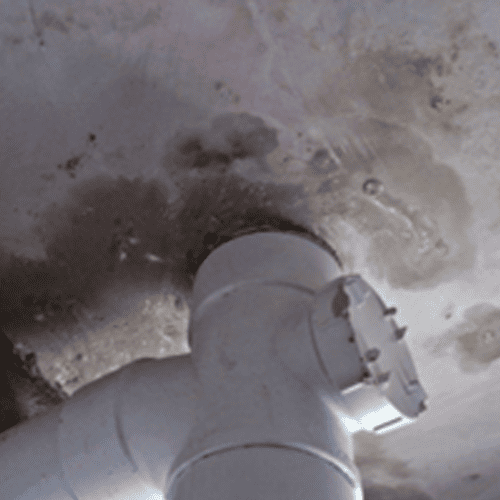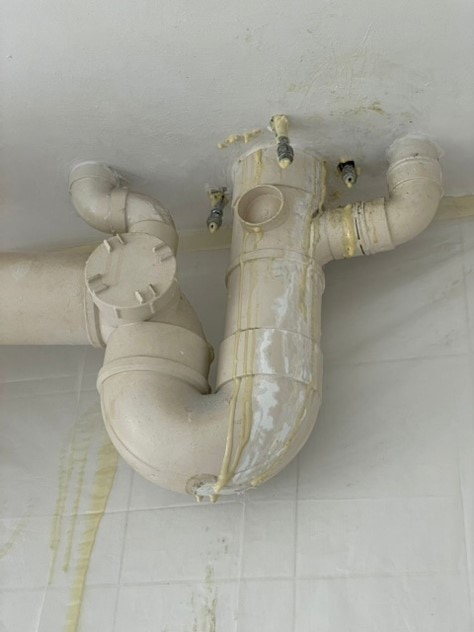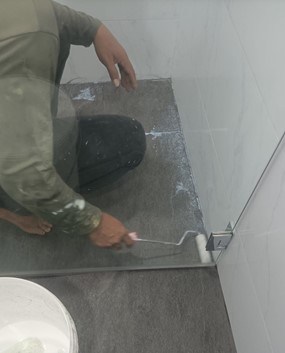Singapore, known for its tropical climate and high humidity levels, is no stranger to the challenges of water leakage in households. Water seepage and leakage issues are common, particularly in bathrooms and toilets. These issues can result from various factors, such as inadequate waterproofing during construction, the relentless humidity of Singapore’s climate, and aging infrastructure in some areas.
1. Inadequate Waterproofing Materials
In the quest to build more homes and structures quickly, some construction projects in Singapore may have cut corners by using subpar waterproofing materials. Inadequate waterproofing can lead to vulnerabilities in areas where water exposure is high, such as toilets and bathrooms. Over time, these materials may degrade, allowing water to infiltrate, and resulting in leaks and seepage.
To tackle this issue, it’s important to ensure that quality waterproofing materials are used during construction or renovations. Singaporean homeowners should also be vigilant when selecting contractors to verify the use of high-quality waterproofing products.
2. Humid Climate
Singapore’s tropical climate, characterized by high temperatures and humidity, can exacerbate water leakage problems. The persistent humidity levels in the air can lead to condensation and moisture build-up in enclosed spaces, including bathrooms and toilets. This excess moisture can compromise the integrity of walls and floors, making them more susceptible to leaks and water seepage.
To combat the effects of humidity, it’s crucial to invest in proper ventilation systems, dehumidifiers, and periodic inspections of the areas prone to water leakage. These preventive measures can help maintain the structural integrity of your toilet and bathroom.
3. Aging Infrastructure
In older residential areas of Singapore, aging infrastructure can be a significant factor contributing to water leakage. Over the years, wear and tear can affect the water-tightness of pipes, plumbing, and waterproofing systems. Cracks and deterioration may occur, allowing water to escape and penetrate the surrounding structures.
To address this concern, regular maintenance and inspections are essential. Homes in older neighborhoods should consider proactive measures such as resealing joints and renovating bathrooms with modern waterproofing systems to ensure the longevity and water-tightness of their toilets.
When it comes to water leakage issues in Singaporean households, understanding responsibility is essential. In most cases, homeowners are responsible for the maintenance and repair of their property, including toilet waterproofing. This responsibility extends to addressing water leakage and seepage issues promptly to prevent further damage.
Homeowners to be proactive in addressing water leakage issues. Neglecting such problems can result in costly repairs in the long run, not to mention potential health hazards associated with mold and mildew growth in damp areas.
In situations where water leakage originates from common property in strata-titled developments or condominiums, the management corporation may take responsibility for repairs. However, homeowners should familiarize themselves with the building’s by-laws and regulations to understand the extent of their responsibility in such cases.
Taking prompt action to address water leakage is vital, regardless of where the responsibility lies. Timely repair work can prevent extensive damage and protect your home’s structural integrity.
Non-Hacking Methods
In recent years, non-hacking methods have gained popularity for their convenience and efficiency. These methods typically do not require the removal of tiles and are less disruptive to your home. Two common non-hacking methods include:
1. Polyurethane Injection Grouting
PU Injection grouting is a non-invasive method used to seal cracks, gaps, and joints that are the sources of water leaks. A waterproof sealant is injected into these problem areas, effectively creating a watertight barrier. This method is particularly useful for minor leaks and can be completed quickly with minimal disruption to your bathroom.
Injection grouting is a versatile technique that can be applied to various surfaces, including tiles, concrete, and cement. It is an efficient and cost-effective option for addressing surface-level water leakage issues.
2. Clear Penetrative Treatment
Clear Penetrative Treatment (CPT) involves applying a special waterproof coating directly onto the existing surfaces. These coatings form a seamless and durable barrier that prevents water infiltration. They are suitable for situations where the waterproofing membrane may have deteriorated or when there are minor surface-level leaks.
Chemical waterproofing coatings offer a non-hacking, cost-effective solution that can extend the lifespan of your bathroom without the need for extensive renovation. They are particularly attractive for their affordability and quick application.
It’s important to note that the choice between non-hacking methods and traditional hacking methods should be based on the severity of the water leakage issue. While non-hacking methods are suitable for minor leaks, more extensive damage may necessitate the traditional approach for long-term structural integrity.
For those seeking less invasive and more cost-effective solutions to address toilet leaks, non-hacking methods offer viable alternatives. These methods are designed to repair water leakage issues without the need for extensive renovation.
Cost of Toilet Water Leakage Repair
The cost of repairing a toilet water leakage issue in Singapore can vary significantly based on several factors, including the extent of the damage, the chosen repair method, and the contractor’s fees. Some key considerations regarding the cost of toilet water leakage repair:
Scope of the Damage: The severity of the water leakage and the extent of the damage will play a major role in determining the cost. Minor leaks that require simple fixes will be less expensive, while extensive damage may require more involved and costly repairs.
Repair Method: The choice of repair method also influences the cost. Traditional hacking methods, while effective, tend to be more expensive due to the labor and materials involved. Non-hacking methods, such as injection grouting and chemical coatings, are typically more affordable and offer cost-effective solutions for minor leaks.
Professional Fees: The fees charged by the waterproofing contractor will vary from one provider to another. It’s essential to obtain multiple quotes to compare prices and ensure that you are getting a competitive rate for the repair work.
Materials and Quality: The type and quality of materials used in the repair can impact the cost. Higher-quality waterproofing materials may come at a premium but can provide longer-lasting results.
Additional Factors: Other factors, such as the location of the leak, the accessibility of the area, and any necessary preparatory work, can also affect the overall cost.
To get an accurate estimate for your specific situation, it’s advisable to have a waterproofing contractor inspect the damage and provide a detailed quote. Keep in mind that addressing water leakage promptly, regardless of the cost, can save you money in the long run by preventing further damage and more extensive repairs.
The actual expenses can differ based on your specific situation. To get an accurate estimate, it’s advisable to consult with a professional waterproofing contractor. Promptly addressing a leaking toilet, regardless of the cost, can prevent further damage and save you money in the long term.
Toilet waterproofing is a crucial aspect of maintaining your home in Singapore, given the challenges posed by the local climate and aging infrastructure. Whether you opt for non-invasive methods or traditional repairs, addressing water leakage issues promptly is essential to safeguard your home’s structural integrity and peace of mind.
The choice of the best waterproofing method depends on the severity of the water leak and your specific needs. For severe cases, the traditional hacking method provides long-term structural integrity. However, for minor leaks and cost-effective solutions, non-hacking methods like injection grouting or chemical waterproofing coatings may be preferable.
It’s essential to consult a professional waterproofing contractor to assess the extent of the damage and recommend the most suitable repair method for your situation. Their expertise will ensure that the chosen method effectively addresses the water leakage issue and prevents future problems.
Contact a reliable waterproofing contractor to carry out the necessary repairs and ensure the long-term integrity of your toilet.
When facing toilet water leakage issues, it’s crucial to enlist the services of a reliable and experienced waterproofing contractor. Here’s how to go about finding and contacting the right professional for the job:
Choosing a professional waterproofing contractor is a critical step in ensuring the successful repair of your toilet’s water leakage issues. Their expertise and experience can make a significant difference in the outcome. In the next section, we’ll explore non-hacking methods to stop toilet leaks, which may be of interest to those looking for less invasive repair solutions.
SWC Construction is one of the best waterproofing contractors in Singapore. We provide our best services, offering professional advice to rectify and repair toilet water leakage.
Contact us now for an onsite inspection to arrange the toilet water leak repair in your residential and commercial buildings. We obtain good reviews from our valuable customers for all the work we carried out over the years. We are well committed to a team of professional technicians and consultants to bring good workmanship and effective and quality waterproofing materials for all our potential customers.





